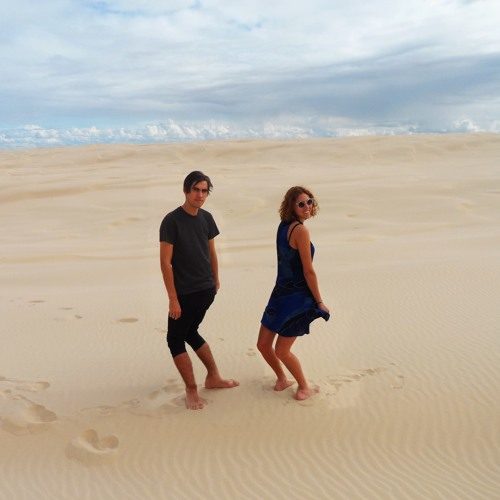As “Here Comes the Best Bit” builds up, it documents the freedom of spontaneity, the energy in recklessness. The lyrics, “Couldn’t tell you if it’s the right place / Not too careful anymore,” are an explosion of liberation from tedious day-to-day stressors. Carb on Carb excitedly describes the anticipation of life and the realization of how picturesque existence is when you take a breath to appreciate it. “Here comes the best bit / I’ll remember it,” a girl chants before ascending into a cascade of drums and falsetto. They explode with energy and spirit that solely come from being alive.
The song’s chorus is electrifying. Even though “Here Comes the Best Bit” is an original being, it feels like singing from instinct. This song is alive in every impulsive, exciting activity you are experiencing, mirroring your giddy state. Complete awareness captures a perfect second in, “Take a breath in between the sets / Sit on the grass, even if it’s wet / Warm wine cold hands / Our favorite bands.” Their lyrics are sending thanks to the universe for the little things that we cherish. The song is an homage to insignificant moments with significance. It sings grace to a rejection of structure, the rebellion of sitting on the wet grass without care. Their words show the understated value in finding a drenched underside laughable instead of deathly embarrassing.
Carb on Carb also documents comradery felt between fans at a concert. They sing about the connection of people singing together, feeling pure joy. Elation at having people surround you that share a common interest is written in, “Our favorite bands / We know the words to all their songs / Our voices hoarse from screaming along.”
An alternate viewpoint, one from a band member, is displayed in the lyric, “The sun reflects off my pickguard.” The sun often represents happiness and life force in literature, but their pick reflects the kindly sun. I interpret this to mean that performing for an audience has filled the band to their brim with ecstasy. Along with their fans, they become fueled by human interaction. Musicians need connections as well.
The theme of freedom is recounted in, “I’ll play the theme from Dawson’s Creek / Will it be yes or will it be?” The original lyric, from the Dawson’s Creek theme song, is, “Will it be yes or will it be sorry?” and, “Will it be yes or will it be?” Carb on Carb chooses to use the line with no apologies, demonstrating that they live for their pleasure. There’s no option for sorry, it’s just motion and emotion.
As the song ends, the wording of one line switches. It goes from, “My best, your worst / My favorite verse,” to, “Your best, my worst / Your favorite verse,” noticing the differing opinions in a friendship. When you love a piece, you tend to perform it better, with more heart. These lyrics confirm this well-known fact.
“Here Comes the Best Bit,” exits with a reminder. They croon, “Careless and loud / At this late hour,” dragging you back to the beginning of the song and its chaos. The words are egging you to forget the rules and create a memorable adventure.







